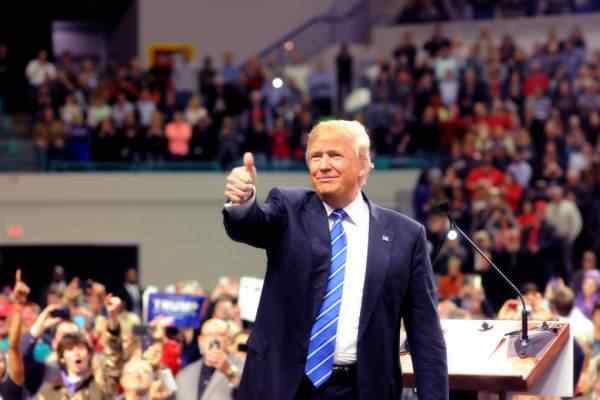(The Post Millennial) – President Donald Trump vetoed the National Defense Authorization Act (NDAA) on Wednesday after passing both houses of Congress with bipartisan support earlier this month. He had previously threatened to veto the bill if it did not include a provision to terminate Section 230.
I will Veto the Defense Bill, which will make China very unhappy. They love it. Must have Section 230 termination, protect our National Monuments and allow for removal of military from far away, and very unappreciative, lands. Thank you! https://t.co/9rI08S5ofO
— Donald J. Trump (@realDonaldTrump) December 17, 2020
Trump demanded that any NDAA bill passed include a repeal of Section 230, which exempts social media giants such as Facebook and Twitter from legal liability for content posted on their websites while allowing them to moderate the content. Section 230 has been widely criticized by Republicans who argue that it grants tremendous censorial power to tech giants.
The legislation passed both houses with a supermajority, however, paving the path for Trump’s veto to be overridden by Congress.
The bill, which is over 4,500 pages long and provides $740 billion in funding for national defense programs, has been signed into law in various forms for nearly six decades.
The President had declared last week that he would veto the bill, saying that doing so would “make China very unhappy.”
🚨🚨🚨 INBOX: @realDonaldTrump has vetoed the National Defense Authorization Act because it removes names of confederate generals from US bases and does not repeal Section 230.
It passed with veto-proof majorities, setting up a humiliating override vote next week. pic.twitter.com/dYbBH7dD2v
— Andrew Feinberg (@AndrewFeinberg) December 23, 2020
Trump also demanded that the bill protect Confederate-inspired monuments and military base names, which he has argued are part of the country’s heritage.
“It has been suggested that we should rename as many as 10 of our Legendary Military Bases, such as Fort Bragg in North Carolina, Fort Hood in Texas, Fort Benning in Georgia, etc. These Monumental and very Powerful Bases have become part of a Great American Heritage, and a history of Winning, Victory, and Freedom,” Trump tweeted earlier this year.
He also expressed frustration with language in the bill which would make it harder for troops to be brought home from Afghanistan. President Trump has repeatedly called for the US to scale back its military operations in the Middle East.
Republican Senator Rand Paul has affirmed Trump’s position on the NDAA, especially in regard to the provisions related to Afghanistan. According to Paul, neoconservative politicians support “substantiating war and making sure that it becomes and is perpetual war.” Paul has further stated that he would push against overriding Trump’s veto.
Other Republicans, such as Senate Majority Leader Mitch McConnell, have opposed the veto.
Meanwhile, House Minority Leader Kevin McCarthy voted in favour of the bill, but has said he will not support overturning President Trump’s veto. “My point has always been, when I became a leader, I would not vote against the president’s veto. I will hold up the president’s veto,” McCarthy said. “We’ve always worked together to make bills better.”
thepostmillennial.com/breaking-trump-vetoes-740-billion-defense-bill

